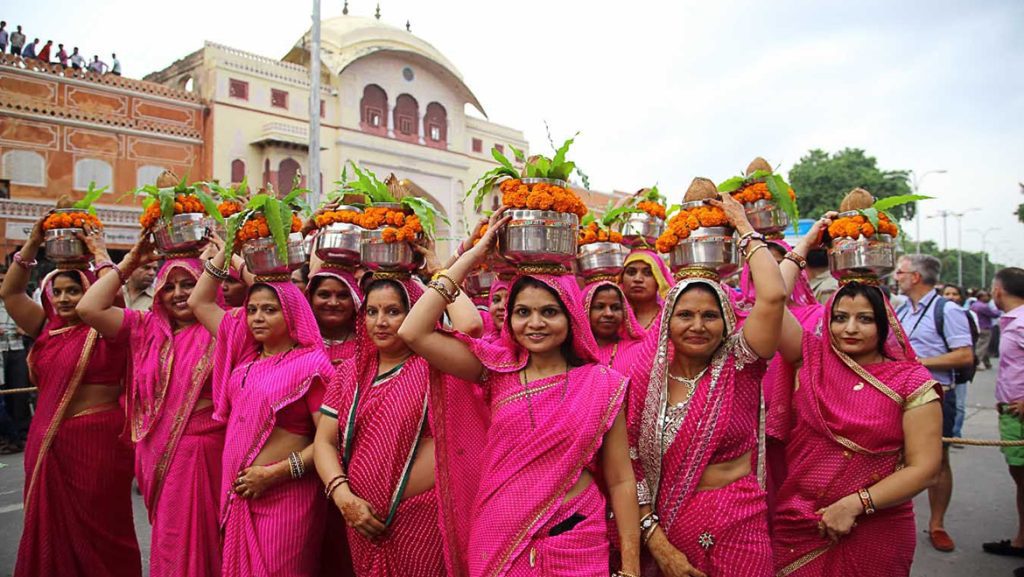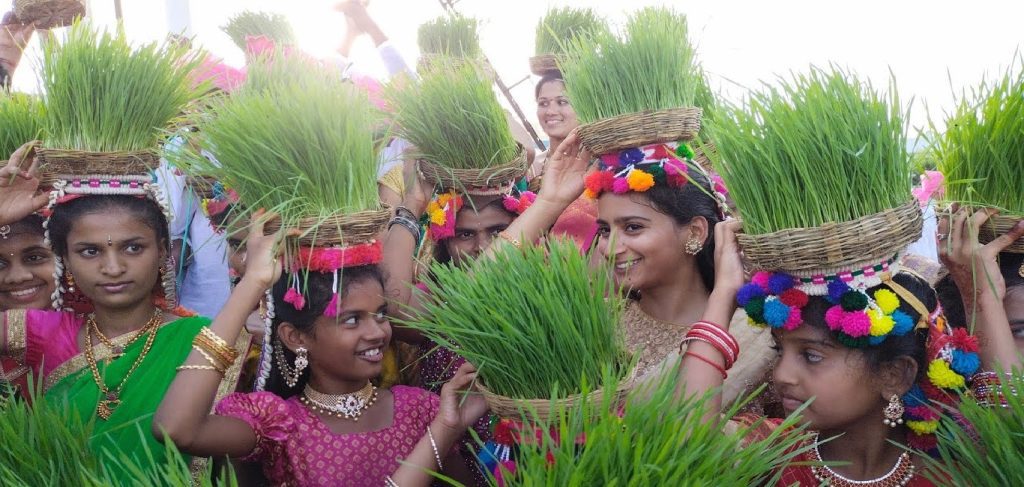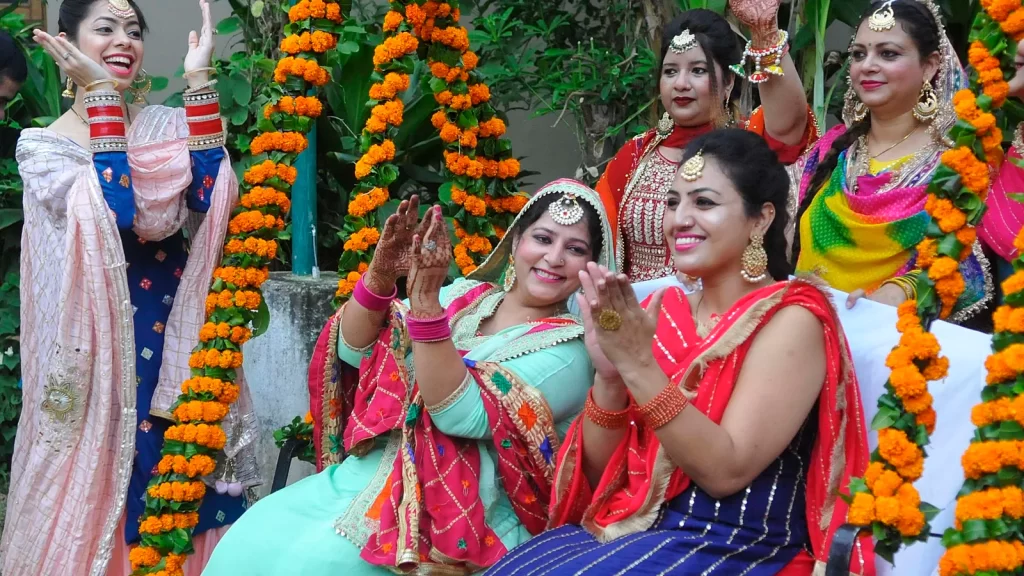- Private car and driver in Delhi / India
- +91-8447445445
- info@discoverindiabycar.com sugar.ankit@yahoo.com
 +91-9818434712
+91-9818434712
Jaipur Teej Festival

An important event called Teej is observed throughout India. In India, this event is observed with great fervour and excitement. It embraces and expresses the rich and exquisite Hindu culture.
The Rajasthani female population enjoys the Teej Festival the most. The holiday is very important religiously. The young females participate enthusiastically in this celebration as well. Married ladies perform a number of rituals and offer their husband’s wellbeing to Goddess Parvati.
History
In the Hindu month of Shravan, the event lasts for two days (July-August). The event is held in remembrance of Lord Shiva and Lady Parvati’s nuptials. Devotees offer prayers to Goddess Parvati for joy and a good marriage. A sizable procession enters the city.
When it falls in the month of Shravan (July/August), Teej celebrates the arrival of the monsoon. The dry area receives monsoon rains, and the fragrant aroma of the moist soil fills the air. In celebration of the arrival of the monsoon, swings are hung from trees and women singing songs while clad in green do so. This festival honours Parvati and marks the day of her marriage to Shiva.
Those who are looking for marital love and contentment worship Parvati. On this auspicious occasion, Jaipur puts on a lavish parade that lasts for two days straight and is well-attended. Whereas the Gangaur idol is open, the Teej idol is covered by a canopy. The holiday is also linked to the conventional ghevar sweet. Parvati is praised during Teej. Women apply mehandi on their hands and celebrate Sinjara on the day before Haryali Teej
Timings for the Jaipur Teej Festival
The festival lasts for two days and takes place in either July or August
Several varieties of Teej
Haryali Teej
On the third day of the first fortnight of the Shravan month, HariyaliTeej is observed. To guarantee that their husbands live longer, women pray to the goddess Parvati. Prior to Nag Panchami, a festival honouring the union of Lord Shiva and Lady Parvati is held. Married ladies observe a fast during this holiday in order to ask the Lord for their husband’s health and long life. Unmarried ladies who desire a long life for their husband as well as marital pleasure also follow the fast. Because of the lush vegetation that the rainy season delivers, the event is also known as Haryali.
To celebrate HaryaliTeej, go to
In India, Uttar Pradesh, Rajasthan, Punjab, Bihar, and Haryana are the best states in which to celebrate Hariyali Teej.

Kajari Teej
Also called Sataudi Teej, Badi Teej, Kajali Teej, and Nimadi Teej, this event is celebrated every year. This teej is observed on the third day of Krishna Paksha, or the dark fortnight, in the month of Bhadrapada. On the Gregorian calendar, the KajariTeej occurs in either July or August. The KajariTeej is typically observed somewhere between Krishna Janmashtami and Raksha Bandhan. In Rajasthan, particularly in the Mewar and Marwar regions, the event is celebrated in splendour and fervour. According to legend, the Kajariteej fast enhances the joy and contentment of women’s married lives. On this day, wives also pray for their husbands’ safety and longevity.
Where to celebrate KajariTeej
The northern states of Rajasthan, Gujarat, Madhya Pradesh, Uttar Pradesh, and Bihar are where KajariTeej is most commonly observed. On this day, revellers travel to amazing statues to celebrate and have a good time.
The tastiest meals to eat during Teej are
- The Ghevar
- The Besankeladdu
- Daal batichurma
- Kaju candy
- Sattu
Places to visit during Teej
Rajasthan is known for its lavish and enthusiastic Teej celebrations. Over the two days of the Teej festival, Jaipur hosts a parade that is quite popular with the general public. Whereas the Gangaur idol is open and visible to the public, the Teej idol is covered. Since many families prepare the dish and then share it, the celebration is connected with ghevar, a type of sweet. The goddess Parvati’s statue is revered. Women put hena to their hands the day before HaryaliTeej and eat varied foods. Women wearing green clothing sing and dance around the swings as they are suspended from the trees.









